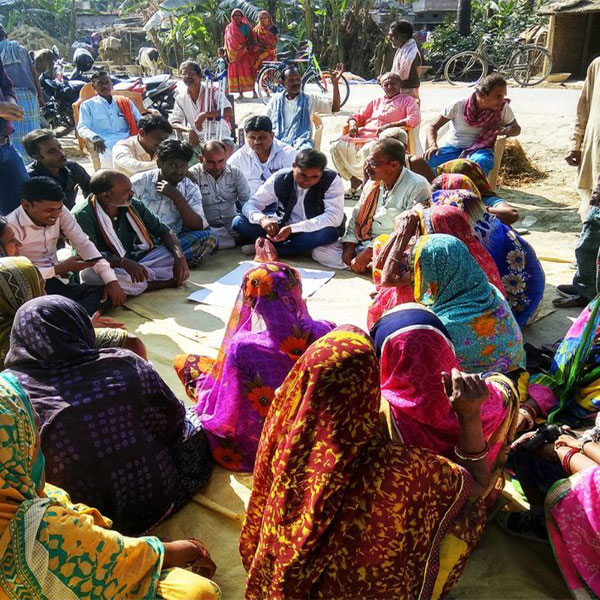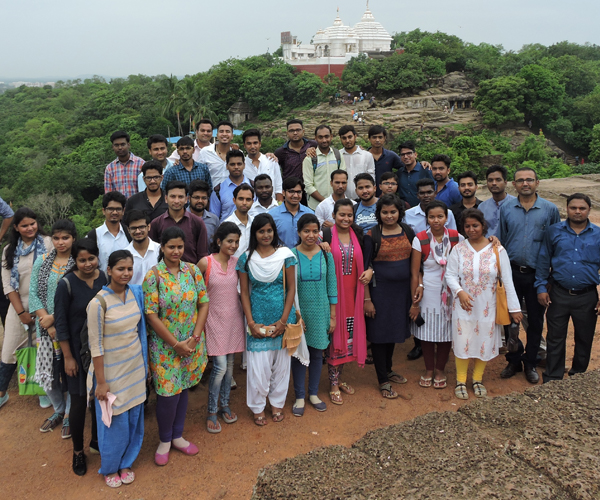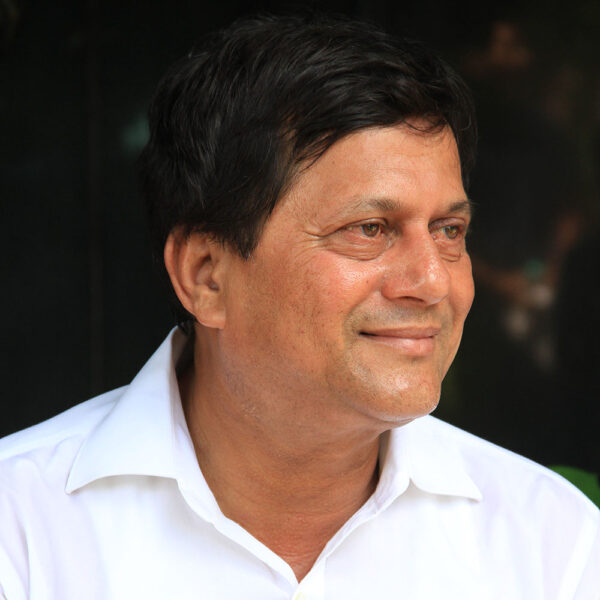Post Graduate Diploma in Community Development (PGDCD)
About the Course:
The Post Graduate Diploma in Community Development (PGDCD) programme was launched in the year 2016 to address the need to rebuild and rejuvenate community initiatives, promoted both in the private and public sector. This program specifically targets young students after completion of Graduation/Post Graduation to understand the nuances of community life, the challenges of program implementation, and the wide gamut of services and finances available mainly from the government and other non-statal players and the issues of the rural poor. Presently this 15 month programme is specifically targeted at Tribal students, who would post completion of this course, be expected to either join community/rural development initiatives at the government/NGO level mainly, or to return to their rural homes and initiate changes by incorporating their learning’s in village reconstruction.
The PGDCD programme is an opportunity for students to explore, and apply an interdisciplinary set of theories useful for understanding and acting within the field of community and regional development. The students will examine the participatory processes and plans developed by academic and rights based institutions like micro level plans and participatory processes to familiarize themselves with the intricacies and effectiveness of planning with the people. The course will also go through an examination of some of the relevant Acts and Policies that have emerged in the last few decades, which have been instrumental in carrying forward the benefits of growth and change to the most excluded communities and people.

Academics:
The PGDCD curriculum comprises of core development sector requirements like theories and policies of community development and growth, conflict resolution in diverse areas varying from community resources to interpersonal and ethnic conflicts and inclusion of vulnerable groups and communities, through gender studies, strategically aligned with numerous sub-disciplines in rural management. The experiential components through its unique content and sequencing provide students with the much needed exposure to community development practices.
Program Outcomes (POs)

- Develop an understanding of the trajectory of community development in the country and the main achievements and bottlenecks in the community development blocks as units of planning and governance.
- Develop a basic understanding on some thematic areas, which play an important role in the development discourse currently.
- Apply knowledge of community development theories and practices to manage and address issues in rural areas.
- Foster analytical and critical thinking for evidence based decision making for issues in rural areas.
- Develop the necessary knowledge and skills to work as supervisory level cadre in both government and non- government organizations.
- Prowess to design, implement, monitor and evaluate strategic projects, programmes and policies for community development.
Programme Design
The curriculum for the programme includes compulsory courses, industry attachment and projects. The students will have to go through a rigorous curriculum which will help them to develop adequate managerial skills appropriate for the agribusiness sector. The programme has 4 semesters and includes an 8 week summer training programme after the completion of the second semester. There are a total of 84 credits in the entire course. Out of these, 10 credits are offered through 2 field segments and 4 credits through live projects and the rest in the form of compulsory classroom courses.
Semester I
- Community Development, Theory Policy and Practice
- NRM & Livelihoods
- Gender & Community Development
- Constitutional Rights & Legal Entitlements
- Governance & Local self administration
- Interpreting data for Community Development
- ICT for Community Development. (I)
- Language – Multi lingual communication (I)
- Laws and Policies
Semester III
- Field Segment
Semester II
- Climate Change, Sustainability and Traditional Knowledge Systems
- Social Change and Community Development
- Perspectives in Tribal Development
- Communication for Development
- Field Research Techniques
- ICT for Community Development. (II)
- Language – Multi lingual communication (II)
- Personality Development & Attitude Building.
Optional ( Any Two)
- Financial Inclusion
- Micro Enterprise & Agri Business
- WASH (Water, Sanitation and Hygiene) in Health
The continuous evaluation system includes assignments, case analysis, quizzes, mid- sem and end-sem examinations.
Lecture method to understand and analyse different concepts and theories, application of different analytical frameworks, data analysis, case studies and movies are the different methods used in the classroom.
The field segment of the community development students takes place in the last semester (3rd semester) of the programme i.e., after the completion of the first two classroom semesters. The module aims at strengthening the development learner to the most important principles of participatory planning. This is based on the demands of the Community Development course, for Theory and Praxis to work in fusion. Through this field segment the students are exposed to the realities of exclusion, vulnerability and development paradigms and models. The students are immersed with the community to understand the daily drudgery of rural living and explore opportunities for changes which are inclusive, equitable and gender just. The field segment is spread over a period of two months and has three components.
Participatory-plan is a plan of activities made by the people, facilitated by the development worker for community and local development and management of the resources available in a village for both the individual and the community; it aims at bringing within the discourse of new learners, development of rural people especially the most vulnerable and excluded sections.
The Community Mobilization Component primarily involves communities facilitated through social animation, by the students to achieve a given development objective. Community Mobilization is a broad scale movement to engage peoples’ participation and create a supportive environment in achieving specific development goals. It has emerged as an effective way to achieve behavior change by changing the knowledge, attitude and practices (KAP) of the target beneficiaries.
It is expected that the students of Community development will be using the mapping method (a combination of participatory techniques), structured and non structured interviews as well as analyzing available secondary data, mapping the effectiveness of community institutions like PHC (Primary Health Centre); Government Schools and community’s own institutions wherever they exist.
The students stay in villages and the host organizations facilitate them in finding paying guest accommodation. The host organization’s reporting officers also facilitate undertaking of both the components through monitoring the work progress of students. The students are also attached with a faculty guide from the school who regularly guide and monitor the work of the students.Before leaving for the internship a 4-5 days workshop is conducted for the students through a mix of class room sessions and live field training in using tools and techniques of Action Research.
Final evaluation of ARS has three components- presentation, report writing and evaluation by the host organization. Presentations by students carry 20% weightage and is evaluated by an external examiner and two internal faculty members other than the faculty guide. The faculty guide evaluates the reports of the students that carry 30% weightage. Evaluation is also done by the host organization based on the report and presentation made there, which carries 50% weightage.

